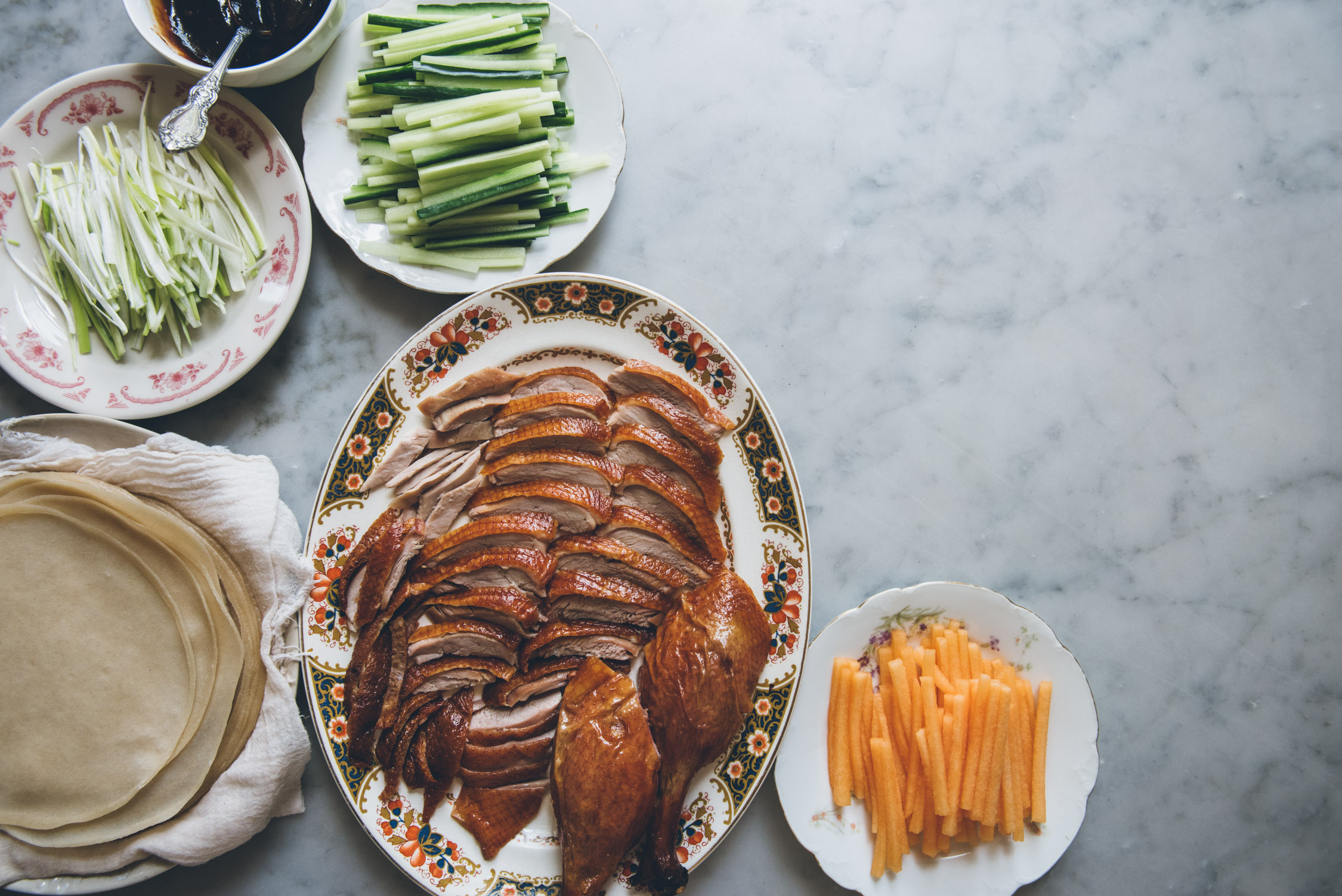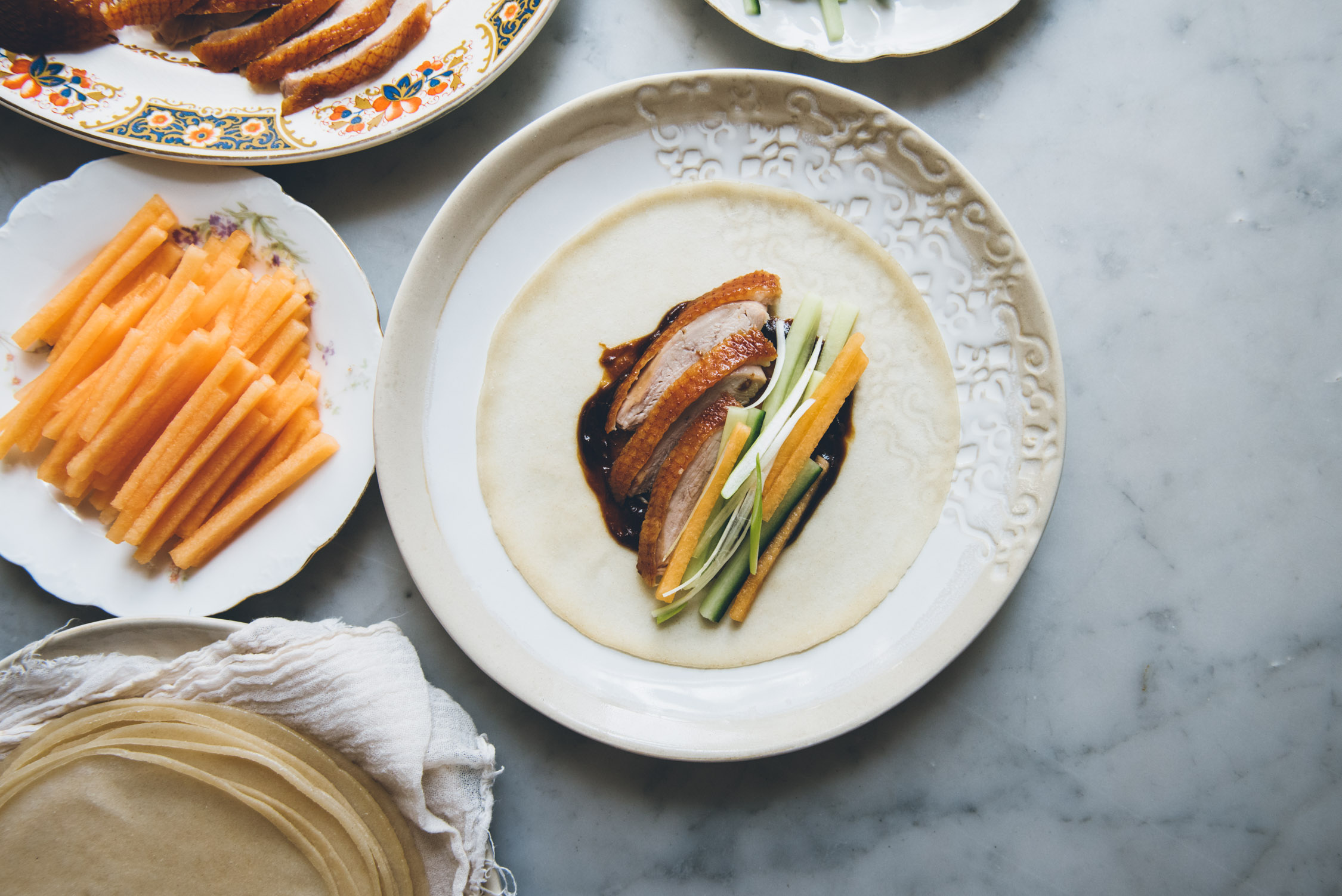One of the reasons I love food so much is the way it brings people together. You can share a meal with complete strangers and in the end feel like family. It's a commonality that connects us all.
I've been thinking a lot about the intro to this recipe. I could tell you a nostalgic story about my family and keep this place clean from current events and politics for fear of alienating some of my readers, but ultimately that's not what I want my blog to be. I want to talk to you like real people who live in the real world. I want to tell you about my struggles, and I want you to tell me about yours. I can't blog about the food that's supposed to bring us together while the world we live in falls apart. So here goes:
I don't want to live in a world where people are murdered while driving home or selling CDs because they are unfairly judged by the color of their skin. Or a world where the officers who risk their lives to protect us are gunned down in retaliation because of the uniform they wear. Or a world where families celebrating a national holiday are mowed down by a terrorist in a goddamn truck.
I wish we as a human race could have more empathy for each other. That sounds so childish to say, and I understand we will never live in a peaceful utopia where hunger, poverty, and racism don't exist, but is it really so naive to ask for an end to the senseless violence? What can we do? What more can we do than post some heartfelt words on Facebook that will be all but forgotten in a week? My answer is I simply don't know. But I will try my best to figure it out.
For now, the only thing I can offer you guys is a recipe meant to be enjoyed with others. The proper way to serve Beijing roast duck is family-style, with all the components placed on the dining table, guests building their own portions of sliced duck, sauce, and veggies tucked into thin mandarin pancakes.
I won't say this is an easy recipe, it took me more than a few tries to get right. First you have to carefully separate the duck's skin from the breast meat to give the fat somewhere to drain, and you have to do this while keeping the skin intact (in my first two attempts, I poked large holes clean through). Then you have to give the duck a quick bath in some boiling water to tighten the skin back up, then you pour an aromatic glazing liquid over the duck, then you dry it in the fridge for one full day, minimum. All of that before you even turn on the oven.
But it's worth it, a hundred times over. If not for the food then for the experience you'll have with everyone around the table. You build a special kind of bond with people over shared meals, and in these days especially we need that kind of human connection.
Duck glazing liquid adapted from We Are Never Full
Duck technique adapted from Serious Eats
Mandarin pancakes adapted from Priscilla Liang
Notes:
The less fatty the duck, the better. I found that the ducks I got from chinatown with the head, neck, and feet still attached (be sure to cut those off) were better for this recipe than the ducks I got from my local butcher because they were much less fatty. The more fat there is, the longer it takes to render out, and the higher your chances of getting soggy skin.
I highly recommend saving the rendered duck fat from roasting for future use. Once the drippings are cool enough to handle, strain it through a fine mesh sieve and place in the fridge until cold. The fat will separate from the liquid and turn solid. You can scrape it off and store it in the fridge in an airtight container for weeks.
Serves about 4.
Ingredients:
For the duck:
1 4 to 5 lb duck
4 cups water
1/2 cup rice wine (Shaoxing or similar)
3 tbsp honey
3 tbsp soy sauce
1 lemon, cut into slices
1 tbsp salt
1 empty tallboy can
For the mandarin pancakes:
2 cups (250 grams) all purpose flour
3/4 cup boiling water
oil for brushing
For serving:
hoisin sauce
julienned cucumber
julienned scallions
julienned cantaloupe or asian pear (optional)
Instructions:
For the duck:
To prep the duck, use your fingers to separate the skin from the breast meat. The most difficult part of this task is finding an entrance point without completely ripping the skin off (a chopstick really helps here, you just kind of lift the skin up and poke at the seam between the skin and the breast until you find a good place to go in). I find it easiest to start from the bottom, carefully working your way up, then going in from the top by the neck and working your way down until you meet up halfway, at which point you should have a cleanly separated cavity for fat to drain.
Next, make your glazing liquid by combining water, rice wine, honey, soy sauce, and lemon in a medium saucepan. Bring the mixture to a boil then turn the heat to medium and simmer for 20 minutes.
In the meantime bring a large pot of water to a boil, enough to submerge (or mostly submerge) the duck. Gently place the duck in the boiling water for 15 to 20 seconds, using a ladle to cover any exposed skin. Immediately remove the duck from the water and place it on a large clean plate. Discard the water and rinse the pot.
By now your glazing liquid should be ready. Set up a wire cooling rack over a rimmed baking sheet. Return the duck to your large, and now empty pot and hold it upright with a pair of tongs. Use a ladle to baste the duck, covering the entire surface. Once all the liquid has been used, transfer the duck to the wire rack. Remove any excess liquid with paper towels, then sprinkle 1 tbsp salt evenly over the surface of the duck, both front and back. Place the duck in the fridge to dry for 24 to 36 hours. You can either discard or repurpose the glazing liquid.
To roast, preheat the oven to 425 degrees F. Fill the empty tallboy can halfway with water. Place the can in the duck's cavity (like beer can chicken!) and stand it up in a roasting/baking pan. Place 1 cup water in the pan to prevent the fat drippings from burning. Roast for 15 minutes at 425 then turn the heat down to 350 degrees F for another 1 hour and 15 minutes.
For the mandarin pancakes:
While the duck is cooking, make the mandarin pancakes. Combine flour and boiling water in a large heatproof mixing bowl. Use a wooden spoon to mix the dough until it starts forming large clumps. Scrape the dough onto a clean counter and knead for 5 minutes or until smooth. Cover with a bowl and let rest for 15 minutes.
Split the dough into 24 even pieces. Work with one piece at a time, keeping the rest covered to prevent drying. On a lightly floured surface, roll one piece into a 3 to 4 inch pancake. Do the same thing for a second piece. Brush the top of the first pancake with a thin layer of oil and stack the second pancake on top. Repeat this process, making two stacks of 12 pancakes, until all of the dough has been used. Roll out each stack until they are 6 to 7 inches in diameter. Place the pancakes in a steamer lined with a cheesecloth and steam for 10 minutes.
You can either separate the pancakes now (they should peel away from each other without much fuss because of the oil) or let your guests do it themselves. Transfer the pancakes to a plate and cover with the same cheesecloth to keep warm until ready to serve.
Final steps:
Once the duck has finished roasting, let it rest at room temperature for 20 minutes. Remove the can and carefully carve the duck into thin pieces, keeping the skin intact as much as possible. Serve with mandarin pancakes, thinly sliced cucumber, scallion, cantaloupe, and hoisin sauce.








